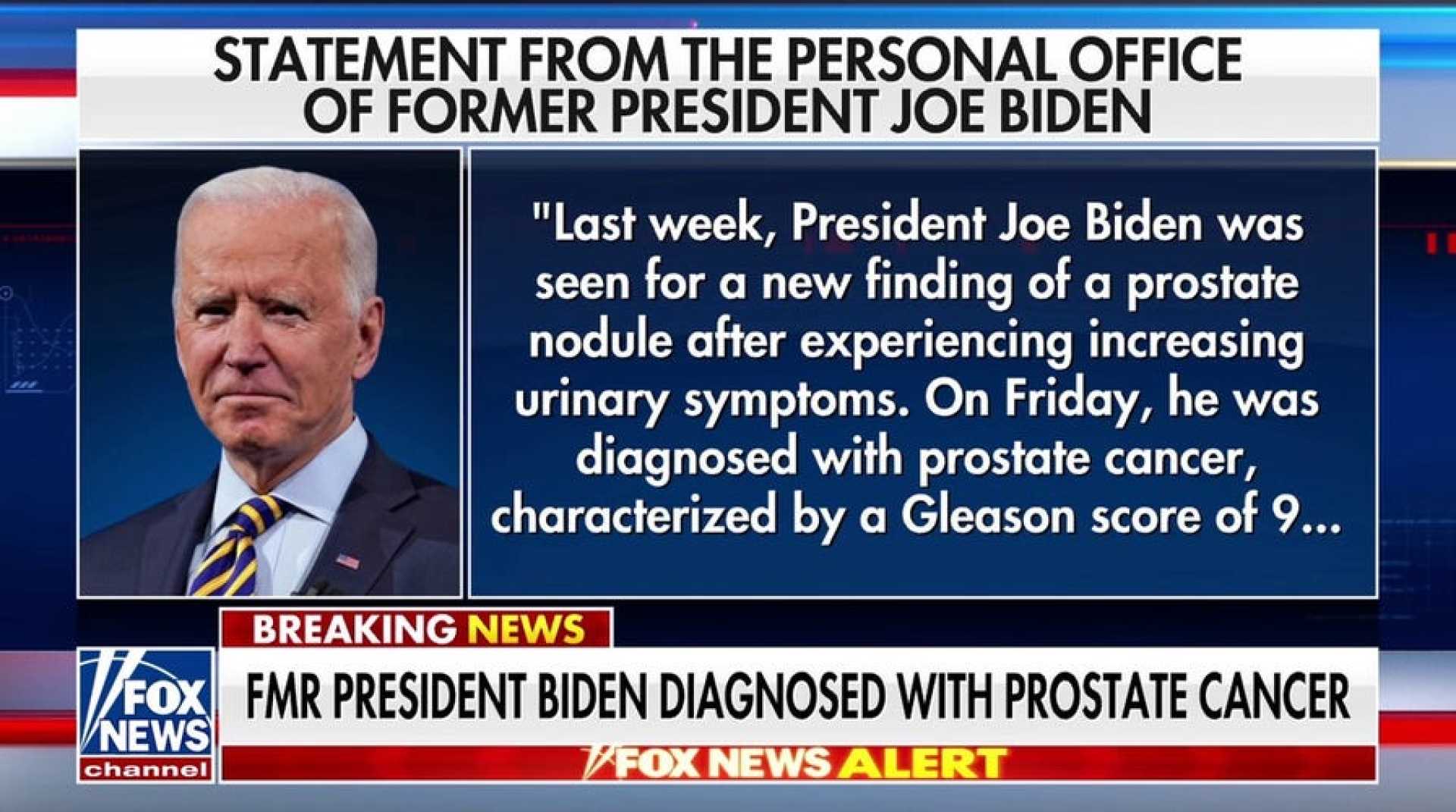Health
Joe Biden’s Cancer Diagnosis Raises Questions About Screening Practices

Washington, D.C. – Former President Joe Biden‘s recent diagnosis of stage-4 prostate cancer has sparked significant public concern over why such an advanced stage of the disease was detected. Biden, 82, has had exceptional access to medical care, raising questions about his screening history.
Experts noted that most prostate cancers are identified through a blood test that measures prostate-specific antigen (PSA) levels, which can help catch potential issues before symptoms emerge. However, some aggressive forms of prostate cancer do not secrete enough PSA for the test to detect them. Dr. Todd Morgan, co-director of the Weiser Center for Prostate Cancer at Michigan Medicine, expressed concerns, stating, “It’s unsettling that someone with fantastic medical care could be diagnosed with advanced cancer.”
Biden’s prior PSA screening history is not publicly known, and guidelines suggest that screening for men over 70 may not be standard practice. The U.S. Preventive Services Task Force advises against PSA screening for men ages 70 and older due to the risks of false positives and overtreatment.
As the oldest sitting president seeking re-election, Biden’s health has come under scrutiny, especially following the death of his son, Hunter, from brain cancer. This intersection of personal tragedy and health concerns amplifies public interest and speculation surrounding Biden’s screening practices.
In contrast, former presidents like Donald Trump and Barack Obama have publicly shared their PSA test results. Trump, responding to Biden’s diagnosis, voiced his concern, stating, “Someone is going to have to speak to his doctor,” questioning why Biden’s condition was not caught earlier.
The Republican-led House Oversight and Government Reform Committee is investigating whether there was any concealment of Biden’s health status. Chris Meagher, a spokesman for Biden, has not disclosed any information about his screening regimen while in office, nor has Biden’s physician responded to requests for comments.
Biden’s current cancer may be hormone-sensitive and could respond to hormone-reducing therapies, although it is likely not curable at this stage. Prostate cancer specialists indicate that aggressive types of the disease can be fast-spreading and often evade detection until later stages.
Experts have debated the frequency and necessity of prostate cancer screenings for years, revealing the complexity behind test recommendations and the balance of early detection against the risks of false positives. Dr. Behfar Ehdaie of Memorial Sloan Kettering Cancer Center remarked, “PSA testing after age 75 is rarely helpful.”
As the nation navigates these health concerns, the rising number of late-stage prostate cancer diagnoses presents an urgent call for clarity on screening measures, particularly for high-profile figures like the president.
“It is surprising [Biden] did not get this test, given the proclivity of presidential physicians to test more rather than less,” said Dr. Ezekiel J. Emanuel, a former White House health adviser.












